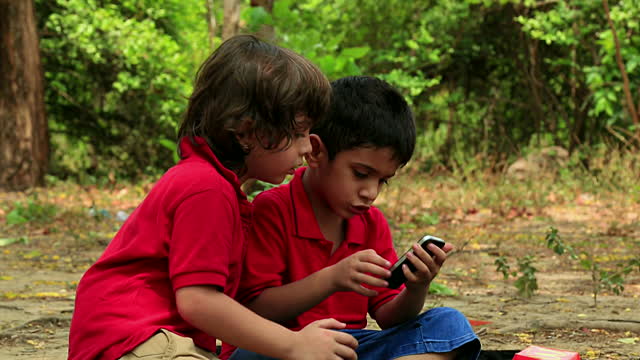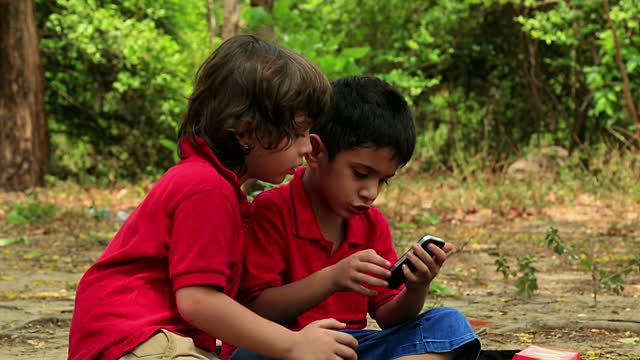Google To Train Kids How To Spot Fake News And Get Rid Of It
Anil - Jun 28, 2019

Millennials have been growing up with the Internet, so it's necessary for them to be guided with such kind of training.
- Google's Project Toscana: Elevating Pixel Face Unlock to Rival Apple's Face ID
- Google Offers Voluntary Buyouts to US Employees Amid AI Push
- Google SynthID: Everything You Need to Know About AI Content Detection
The approachment of news media to us has become transformed in the Internet era, where your Internet connection is believed to play an irreplaceable role. From publication newspapers and traditional television programs, we're now deepening in e-papers and streaming services like live-broadcasting or Netflix. Through the massively wide scope of the Internet, the news is more accessible more than ever before. However, the more convenient, the more 'fake news' comes along with us.

Keep in mind that fake news can be spread easily in rapid time, and children are under big vulnerability of threats in the Internet world: they also access to social networking platforms and age-restricted sites with various kinds of manipulated photos and contorted facts, especially kids. Just a while ago, the Facebook-owned messaging platform WhatsApp has noticed the problem by restricting the number of forwarding messages. For now, Google may be the first one that seriously does something over media literacy.

Put briefly, the Google News Initiative India conducts workshops to train participants on how to get rid of fake news since 2018. Back in 2017, a program called Be Internet Awesome was launched by Google, with the primary purposes is to aim at teaching kids how to stay safe and make the most of the internet at the same time. The company on Monday said that it has already further improved the project with six additional features to help kids determine if the content is from credible sources or just online fake news. Apart from that, those activities also equip children with some required skilled to realize online frauds like phishing and bots and how to respond to them.

Up to now, fake news comprises of three categories: misinformation, disinformation, and mal-information. Put briefly, the Millennials have been growing up with the Internet, so it's necessary for them to be guided with such kind of training.
Featured Stories

ICT News - Feb 20, 2026
Tech Leaders Question AI Agents' Value: Human Labor Remains More Affordable

ICT News - Feb 19, 2026
Escalating Costs for NVIDIA RTX 50 Series GPUs: RTX 5090 Tops $5,000, RTX 5060 Ti...

ICT News - Feb 18, 2026
Google's Project Toscana: Elevating Pixel Face Unlock to Rival Apple's Face ID

Mobile - Feb 16, 2026
Xiaomi Launches Affordable Tracker to Compete with Apple's AirTag

ICT News - Feb 15, 2026
X Platform Poised to Introduce In-App Crypto and Stock Trading Soon

ICT News - Feb 13, 2026
Elon Musk Pivots: SpaceX Prioritizes Lunar Metropolis Over Martian Colony

ICT News - Feb 10, 2026
Discord's Teen Safety Sham: Why This Data Leak Magnet Isn't Worth Your Trust...

ICT News - Feb 09, 2026
PS6 Rumors: Game-Changing Specs Poised to Transform Console Play

ICT News - Feb 08, 2026
Is Elon Musk on the Path to Becoming the World's First Trillionaire?

ICT News - Feb 07, 2026
NVIDIA's Gaming GPU Drought: No New Releases in 2026 as AI Takes Priority
Read more

ICT News- Feb 20, 2026
Tech Leaders Question AI Agents' Value: Human Labor Remains More Affordable
In a recent episode of the All-In podcast, prominent tech investors and entrepreneurs expressed skepticism about the immediate practicality of deploying AI agents in business operations.

ICT News- Feb 19, 2026
Escalating Costs for NVIDIA RTX 50 Series GPUs: RTX 5090 Tops $5,000, RTX 5060 Ti Closes in on RTX 5070 Pricing
As the RTX 50 series continues to push boundaries in gaming and AI, these price trends raise questions about accessibility for average gamers.

ICT News- Feb 18, 2026
Google's Project Toscana: Elevating Pixel Face Unlock to Rival Apple's Face ID
As the smartphone landscape evolves, Google's push toward superior face unlock technology underscores its ambition to close the gap with Apple in user security and convenience.
Comments
Sort by Newest | Popular